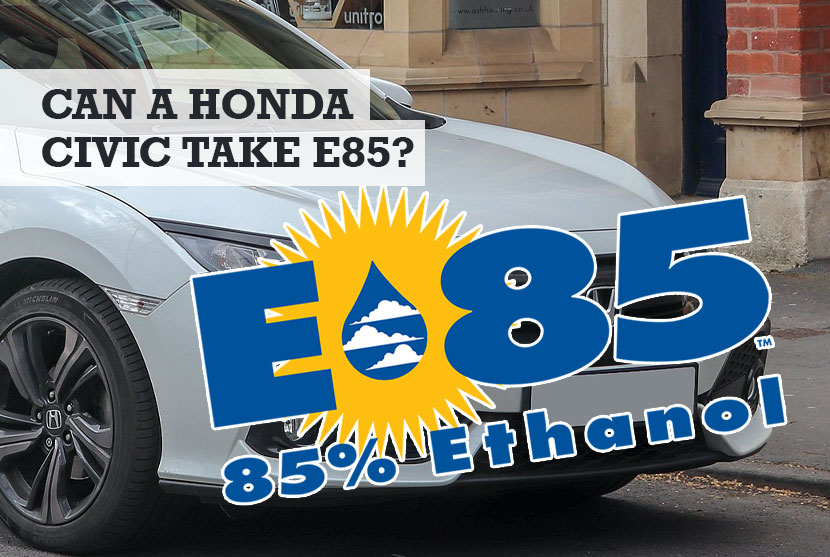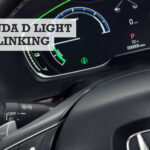With gas prices steadily on the rise and global warming on everyone’s mind, using E85 fuel is often considered an alternative as it’s often cheaper than regular fuel. Unfortunately, not all cars can run on E85 according to the manufacturer specification.
So, how does that impact on Honda Civics taking E85? I wanted to know as like to save money and looked the answer up on social media and the Honda website. Here’s what I discovered…
Can a Honda Civic take E85? No, I don’t recommend you put E85 in your Honda Civic. Honda put out an official statement on their website stating how Honda engines are not currently certified or designed to run on E85 or any other alternative fuel.
If you do decide to put E85 in your Honda Civic you could damage the car and invalidate any warranty. Here’s why from what I can ascertain…
Why you should not use E85 in Honda Civic
E85 flex fuel has benefits that appeal to various driver profiles. An average family will be attracted by the noticeably lower price per gallon. Someone environmentally conscious will consider E85 for its better carbon footprint.
On the complete opposite spectrum, someone who is all about performance and horsepower will do everything to get his car to run on E85 because of the significant power increase this fuel can provide.
Manufacturers started making flex-fuel cars after 2008, but that is not the case with Honda. No Honda Civic so far can run on E85 right from the factory. Running a Civic on E85 can cause problems.
For example, it could cause the engine to run a lean mixture and possibly cause catastrophic engine damage. Other inevitable issues include a broken fuel pump, disintegrated fuel hoses, and gas tanks, to name but a few.
Also, running any car on E85 without a manufacturer’s approval will void the warranty.
Honda Civic E85 conversion
With all said and done, not everything is lost. There is a way to convert your Honda Civic to run on E85, depending on the year of production. For the older models, it’s still possible, but it will be more complicated and only makes sense if you are an enthusiast and are doing it for performance benefits, as the cost will possibly be much higher than the cars.
Watch this video:
How to convert a Honda Civic to run on E85
With all the benefits and a reasonably low conversion price for newer models, it could be worthwhile to convert your Civic to run on E85. So how can you convert your Honda Civic to run on E85, and is it worth it for your model?
To convert any recent Honda Civic to E85, by recent, I mean OBD2 cars built after 1996, the ECU will require a detailed remap. A remap can potentially cost a lot of money if you want to do it right, and trust me, you do.
Once you set up your engine tune for E85, another problem arises. All E85 fuels are different ratios of gasoline and ethanol. These ratios can vary between different gas stations, states, or times of the year. The engine always needs to know what percentage of ethanol is present in the fuel to run correctly, so you will need to install an E85 kit that detects this ratio and sends the information to the ECU to adjust all the parameters.
Still, this will reduce the life of your gas tank, and you will need to change your fuel lines and hoses if they are not flex-fuel rated but make sure to check if they are before you change them.
For older Civics, OBD1 or pre-1996, you will need all the things I mentioned above and include many other things like bigger fuel injectors and a bigger fuel pump. The ECU tuning will also be more expensive since it’s a bench tune, and the ECU needs to be disassembled.
So, this is the type of Civic that will have an E85 conversion purely for performance reasons, as the cost of converting will far outweigh the money-saving benefits.
Every E85 conversion is highly specific to each car, and this is just a simple outline of what you will need to do. The price of conversion kits will vary, the cost of ECU tuning, and a possible need for a standalone ECU that will take the price of the conversion to astronomical heights.
So, if saving money on fuel or carbon footprint is the reason you want a conversion to E85, consider it only if you have a newer model Civic, and make sure to do a thorough research of everything you will need and how much it will cost.
Handy Hint: Here’s how far you might be able to drive when your Civic fuel gauge is showing empty.
The pros and cons of running on E85
With the conclusion that no Honda Civic takes E85 from the factory and conversion options in many cases are not so simple or cost-effective, let’s go over all the benefits and drawbacks of E85. Who knows, it might be worthwhile to get a different car with all these benefits.
Pros
- It costs less than regular gasoline. The price of E85 will be 32% cheaper on average than gasoline, and even though the fuel consumption is greater on E85, it will rarely be more than 20% higher than regular, so it will always be cheaper to run. No matter the car.
- E85 makes more power. Getting your engine to make more power was never a cheap task and rarely a simple one. But with E85, you will gain 20% more horsepower and torque on average while costing less than gasoline, and for FFV, all it takes is to grab a different pump at the gas station.
- It helps the engine run cooler. Gasoline, in general, is crucial in cooling the engine internals, but ethanol does that job much more efficiently. Consequently, this will produce more power and increase the longevity of your engine, saving you even more money.
- E85 cleans the engine and its components a lot better. Again, gasoline serves to clean carbon deposits inside the engine, which is very important for its health and efficiency. Ethanol is a lot better at this job than gasoline and will save more money in the long run by keeping the internals clean.
- E85 helps fight global warming. E85, in the worst-case scenario, produces 50% fewer greenhouse gas emissions than gasoline. Now imagine if all cars converted to E85. To say that it would have a significant impact on global warming would be an understatement.
Cons
- The scarcity of fuel stations depends on your area, so you should do some research on that.
- Conversions are usually expensive.
- Ethanol absorbs moisture, leading to poor performance, but there are ways to minimize that.
Related questions
Can a 2013 Honda Civic take E85?
No Honda Civic can run on E85 from the factory, so avoid that by all means. However, conversion kits are available for all Honda Civics, especially the newer ones.
Is Honda CRV a flex-fuel vehicle?
No, a Honda CRV cannot run on E85. You should use only the manufacturer-recommended fuel.
What is the recommended fuel for a 2022 Honda Civic?
The manufacturer recommended fuel rating for a 2022 Honda Civic is unleaded gasoline of 91 octanes or higher.
Can I run E85 in my vehicle?
If your vehicle is a designated FFV, it can run on any percentage of E85. If you are unsure if it’s an FFV, consult your owner’s manual or contact a local dealer.
Conclusion
It’s simple – don’t put E85 in your Honda Civic as it is not recommended by the manufacturer.






